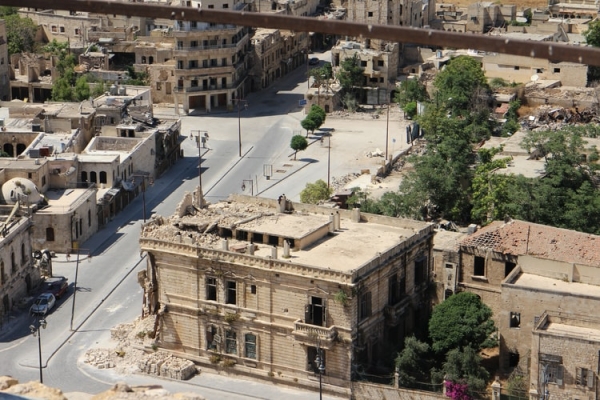Mr. Martin Griffiths, Under-Secretary-General for Humanitarian Affairs and Emergency Relief Coordinator stressed the need to increase aid in Syria, after concluding a seven-day visit to Syria, Lebanon, and Turkey. Only 27 percent of the required $4.2 billion for the 2021 Humanitarian Response Plan for Syria is collected. And only 19 percent of the required $5.8 billion for the Regional Refugee & Resilience Plan is collected.
Mr. Griffiths visited Syria, Lebanon, and Turkey as his first official mission after assuming the role of UN Emergency Relief Coordinator to obtain a deeper understanding of the challenges. “Humanitarians and donors must keep Syria high on our collective agenda to prevent an entire generation being lost”, he said. There is a greater need to expand the access to aid to those people who depend on it. Amid ongoing violence and unstable political process, protecting civilians and helping them create a future for themselves has to be emphasized.
Heavy ground clashes are ongoing in the south-west of Syria, especially in Deraa province. Similarly, tensions are high in Idlib, northern Latakia, Aleppo, and western Hama with intensified airstrikes and shelling in recent months. Mr. Geir O. Pedersen, Special Envoy for Syria, said that “These developments remind us that the conflict in Syria is far from over and that we need a credible political process as well as more sustained international cooperation”.
With intensified tensions and ongoing violence, economic difficulties for people have increased. Difficulties in accessing the markets increase the loss of income for people which, in turn, causes more food insecurity. In addition, the drop in the level of the Euphrates River to a critically low point has caused a severe water crisis in Syria. Besides these, tackling COVID-19 is still a big challenge as less than one percent of Syria’s population is vaccinated as of August. Vaccination needs to be scaled up.
During his visit, Mr. Griffiths met with high-level governmental officials, the humanitarian community, aid workers, refugees, and host communities. He lobbied to stop violence and increase humanitarian access to the needy. He also iterated that the people desire safety with access to basic services.
Sources:
https://news.un.org/en/story/2021/09/1099192
https://news.un.org/en/story/2021/08/1098362
Auhor: Shrabya Ghimire







